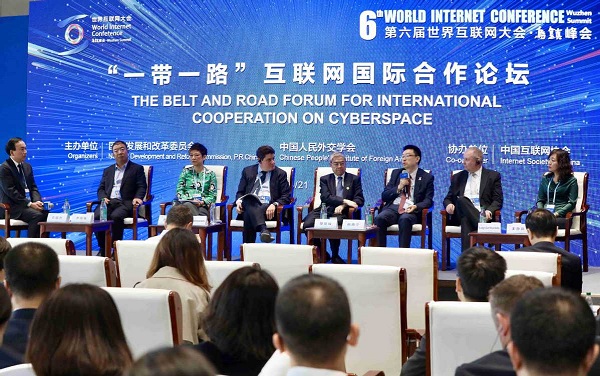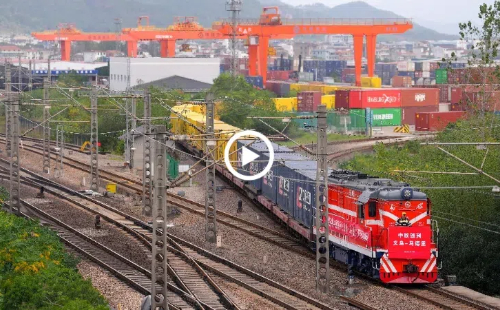Partners need consensus to cope with rapid tech changes

Participants take part in a sub-forum during the sixth World Internet Conference in Wuzhen, Zhejiang province. [Photo by Zhu Xingxin/China Daily]
Only through an open, cooperative consensus among all partners based on equality, mutual benefit and inclusiveness can the world successfully address new challenges occurring from rapid technological change, an industry leader said during the Belt and Road Forum for International Cooperation on Cyberspace.
This would allow all parties to push forward global internet governance toward a more fair direction under globalization, the industry leader said at a sideline event of the sixth World Internet Conference in Wuzhen, Zhejiang province.
With a theme of "Intelligent Interconnection for Openness and Cooperation: Building a Community with a Shared Future in Cyberspace", this year's conference has attracted more than 1,500 guests from governments, international organizations, leading enterprises, technological communities, and social organizations.
Wang Jingying, CEO of Wi-Fi Master Key, the world's largest platform for free internet access, said "independent research and development" and "coordination" are the key words for companies to address internet security challenges.
A revolution in technology has brought about new challenges to internet security, and under a complex internet environment, cyberspace security has become a borderless, full-chain, real-time issue. As internet environments and user behavior become diversified, enterprises must increase their efforts on independent research and development.
"Taking Wi-Fi Master Key as an example, we have established a set of proactive internet security systems, using advanced technologies such as artificial intelligence and big data, to improve the overall self-repair capability, to achieve 'ecological internet security'," Wang said.
A country's internet companies should cooperate and trust each other to address online security problems together, she explained.
Internet companies in different countries should boost strategic mutual trust and establish coordinated cooperation, and those countries should establish a globally unified governance concept based on mutual cooperation, joint construction and sharing, which leads to building a community with a shared future in cyberspace, she said.
Wi-Fi Master Key, having more than 800 million monthly active users, must simultaneously solve the challenges from a complicated business atmosphere, huge information flows, high concurrency, multi-architecture, and rapid product iteration.
Wu Hequan, an academician of the Chinese Academy of Engineering, said the internet is a shared home of human society and all countries should work together to share intelligence to maintain cybersecurity, helping achieve a win-win situation for all stakeholders.





 play
play